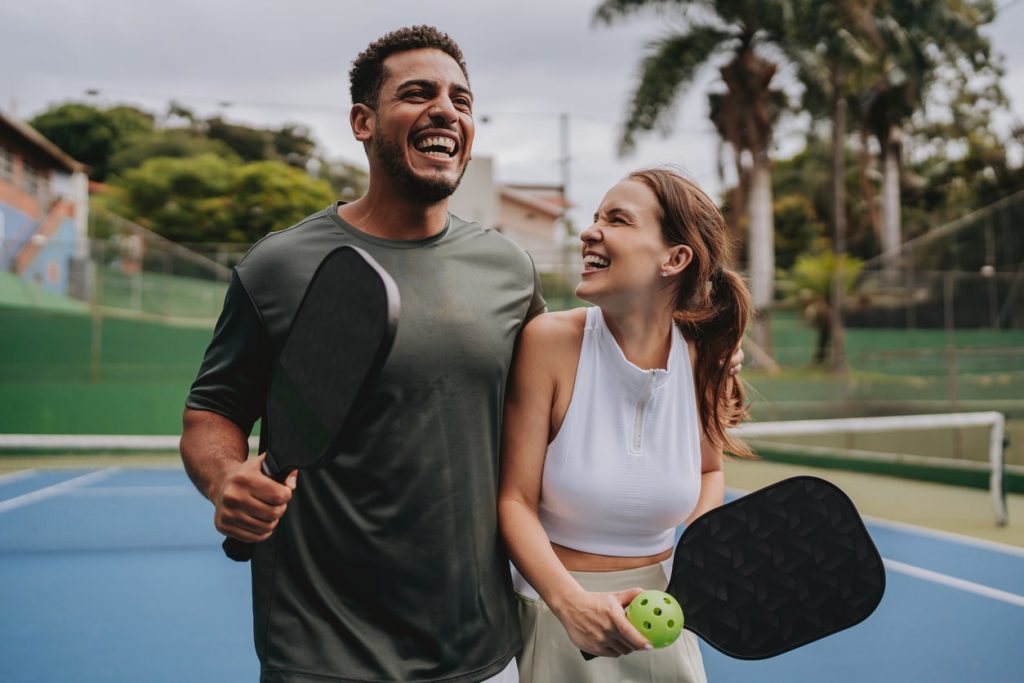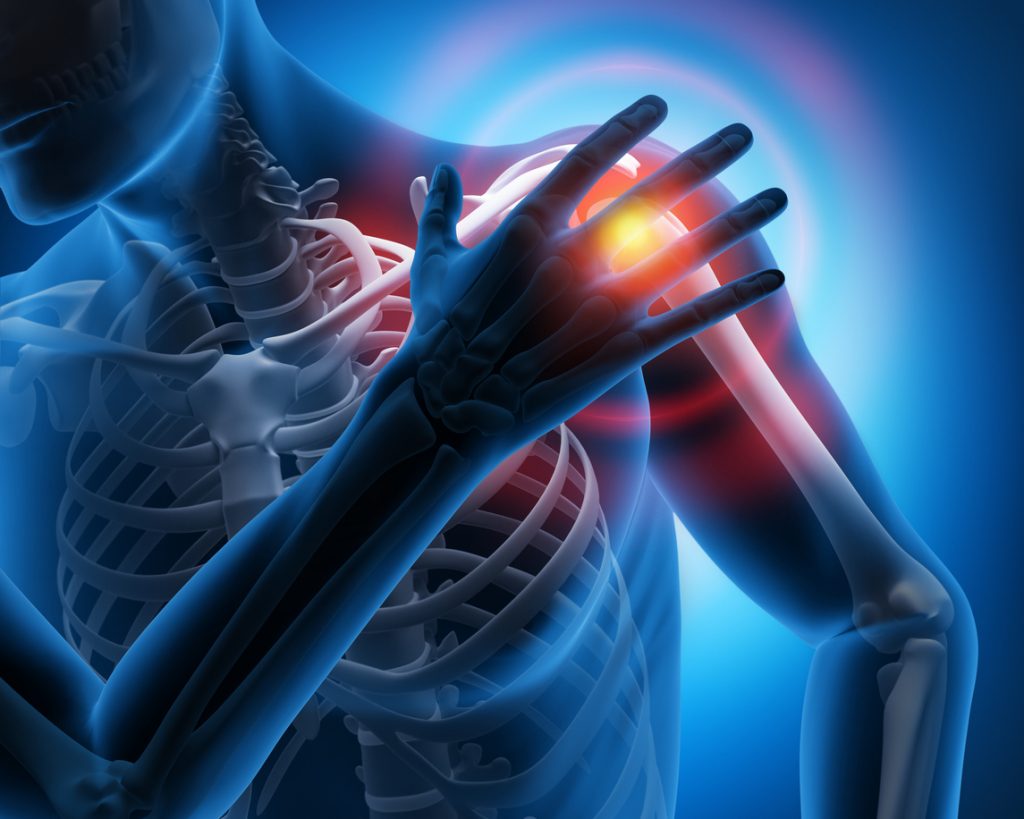Pickleball has soared in popularity across the United States, captivating over 2.8 million players by 2017, with a significant portion being those aged 55 and older. Despite its engaging nature and being perceived as a low-impact sport, pickleball injuries, including sprains, strains, fractures, and particularly lateral epicondylitis or ‘pickleball elbow,’ are not rare among players.
Understanding the essential tips for preventing pickleball injuries is crucial to mitigating the risk of knee and shoulder pain and other common ailments. Learn how to enjoy the game while minimizing the chance of a pickleball injury through practical strategies like equipment and apparel choices, technique improvement, and the importance of stretching.
Understanding Pickleball Injuries
Understanding the spectrum of pickleball injuries is crucial for players of all levels. Prevalent injuries include:
- Pickleball Elbow: Tendon inflammation from repetitive use, also known as lateral epicondylitis and tennis elbow.
- Shoulder Strain: This can lead to pain, reduced mobility, and inflammation.
- Wrist and Rotator Cuff Injuries: Resulting from overuse or improper technique.
- Knee and Ankle Sprains: Often due to sudden movements or improper landings.
- Achilles Tendonitis: Can progress to tendon tears if not addressed.
- Lower Back Strains: Caused by twisting or overreaching during play.

Equipment and Apparel for Injury Prevention
Selecting the right equipment and apparel plays a significant factor in preventing pickleball injuries. Essential gear designed to keep players safe include:
- Proper Footwear: Tennis or pickleball shoes with good lateral support and traction are crucial to prevent rolling an ankle or slipping.
- Compression Gear: Performance compression shirts and shorts provide targeted support to key muscle groups, manage body temperature, improve blood flow, and reduce the risk of strains.
- Accessories: Stabilizing the elbow and knee joints, arm sleeves, and knee braces helps minimize the risk of strains, sprains, and overuse injuries.
Technique and Skill Development
Technique and skill development in pickleball is not just about enhancing performance but also a critical aspect of injury prevention. Players can reduce the risk of common pickleball injuries by using proper form and specific exercises. Some essential tips and exercises include:
- Perfect Your Routine: Incorporate a brief warm-up and cool-down routine before and after playing pickleball to prepare your muscles for activity and promote recovery, reducing the risk of injury.
- Balance and Reaction Time: Engage in exercises that improve balance and reaction time, such as single-leg stands and agility drills. These enhance stability and reduce falls or missteps on the court.
- Generating Power Correctly: Generate power correctly by using the hips and torso, minimizing strain on the arms and shoulders, and incorporating exercises like squats and lunges to strengthen the muscles around the knee, supporting better movement and reducing injury risk.
- Proper Technique and Form: Ensure proper form by using the correct hitting technique, like keeping a relaxed grip, using the non-dominant hand for paddle support, and adopting movement techniques on the court, such as shuffling sideways and avoiding crossing feet for stability.
When to Seek Medical Attention
When you start playing pickleball, especially for those new to the sport or with pre-existing health conditions, it’s vital to understand when to seek medical attention to prevent exacerbating injuries. Minor injuries like sprains and “pickleball elbow” may be initially treated with the RICE method (Rest, Ice, Compression, Elevation) and over-the-counter pain medication. Persistent pain or injuries that don’t improve within a few days may warrant a consultation with an orthopedic surgeon specializing in sports medicine. In cases of overuse injuries, physical therapy can be beneficial, whereas more serious structural issues may require surgical treatment.
Top 10 Tips for Safely Mastering Pickleball
To optimize your pickleball play while minimizing injury risk, consider adding these top 10 tips into your routine:
- Listen to Your Body: Stop playing at the first sign of pain or discomfort to prevent exacerbating potential injuries.
- Stay Active Outside the Court: Diversify your exercise routine with activities that complement pickleball, such as weightlifting or yoga, to ensure balanced muscle development and flexibility.
- Know Your Limits: Be conscious of your health and physical capabilities, adjusting play intensity accordingly.
- Smart Play Strategies: Utilize playing techniques that work smarter, not harder, to avoid overexertion and injury.
- Injury Management: Employ the RICE method for immediate treatment of minor injuries to reduce swelling and pain.
- Incorporate Diverse Exercises: Include strength, mobility, and agility exercises to build a well-rounded physique resilient to injuries.
- Warm-Up and Cool Down: Always start with a dynamic warm-up and end with static stretches to maintain flexibility and muscle health.
- Court Awareness: Be vigilant of your surroundings to avoid collisions and stay within safe play boundaries.
- Rest and Recovery: Allow ample time for your body to recuperate between games, especially if engaging in weekly play.
- Stay Hydrated & Maintain a Healthy Diet: Drink water before, during, and after playing pickleball to maintain performance. Be sure to eat a balanced diet rich in nutrients to support energy levels and recovery.
By following these tips, players can enjoy the benefits of pickleball while significantly reducing the risk of common injuries associated with the sport.
Contact Us
Playing pickleball is an enjoyable and rewarding activity, but it’s essential to prioritize safety and injury prevention. By following the tips outlined above and knowing when to seek medical attention, players can minimize the risk of injuries and prolong their enjoyment of the game.
For expert care and personalized attention tailored specifically to your needs, contact Peter Howard, M.D. Whether recovering from an injury or seeking preventive measures to enhance your performance on the court, Dr. Howard can provide you with the support you need. With his expertise and dedication to patient care, Dr. Howard will help you stay in the game and continue enjoying pickleball for years to come.
